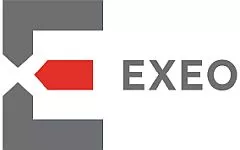- within Immigration topic(s)
- in United States
- with readers working within the Property industries
- with readers working within the Property industries
Executive Summary
- U.S. District Court Decision in Favor of EB-5 Investor: The court ruled that USCIS acted arbitrarily and capriciously by requiring an EB-5 investor to prove the lawful source of funds held by a third-party currency exchanger.
- Key Takeaway for Investors: EB-5 applicants may only need to demonstrate that they lawfully obtained their own capital—not the source of U.S. Dollars converted through currency swaps or third-party exchanges.
- Significant Impact on Investors from Restricted-Currency Countries: This is welcome news for applicants from China, India, Bangladesh, Vietnam, and Northern Africa, where money changers and informal exchange systems (such as hundi or hawala) are commonly used due to currency restrictions.
- Parallel Ruling in Battineni v. Mayorkas: This decision follows and expands upon Battineni v. Mayorkas (2024), where another court ruled against USCIS's overreach in requiring EB-5 investors to trace the funds of third parties beyond their immediate source.
- Implications for EB-5 Applications: This decision could reduce the burden of proof for investors using legitimate currency-exchange services, potentially leading to faster and more successful adjudications of I-526 petitions.
- What Happens Next? USCIS must reconsider its approach and align with the court's ruling, but investors should still ensure they properly document the lawful origin of their initial investment capital.
Federal Court Rules Against USCIS in Landmark EB-5 Case on Currency Exchanges
A recent U.S. District Court ruling in Jing Zhou v. Noem has delivered a significant victory for EB-5 investors, particularly those from countries with strict foreign exchange controls. The court found that USCIS exceeded its regulatory authority by requiring EB-5 applicants to trace not only their own funds but also the origins of U.S. Dollars provided by third-party currency exchangers.
This decision is particularly important for investors from countries where national regulations restrict currency exchanges—such as China, India, Bangladesh, Vietnam, and parts of North Africa—forcing them to rely on money changers, hundi, or other informal currency swap systems.
The Case: EB-5 Investor Denied Due to USCIS Scrutiny of Currency Exchange
The plaintiff, Jing Zhou, a Chinese national, filed an EB-5 petition based on a $500,000 investment in a Wisconsin redevelopment project. Due to China's strict currency controls (which limit individual foreign exchange to $50,000 per year), Zhou used a third-party exchanger in Hong Kong to convert her funds from Chinese Yuan (RMB) into U.S. Dollars before making the EB-5 investment.
Despite providing extensive documentation proving the lawful origin of her own capital—earned by her husband through legitimate employment—USCIS denied her petition. The agency argued that Zhou failed to establish the lawful source of the third-party exchanger's U.S. Dollars, despite no regulatory requirement demanding such proof.
The Court's Decision: USCIS Overstepped its Authority
Judge Timothy J. Kelly ruled that USCIS acted arbitrarily and capriciously by imposing an evidentiary burden beyond what the law requires. The EB-5 regulations only require an investor to prove that they lawfully obtained their capital, not to trace the origins of U.S. Dollars used in currency swaps.
The court rejected USCIS's interpretation, stating:
- The EB-5 regulations focus on the investor's acquisition of capital, not the history of every prior transaction involving the exchanged currency.
- The investor's capital remains lawfully obtained even if it is converted into another currency via a third party.
- USCIS's demand that Zhou prove the lawful source of her exchanger's funds was not justified by any existing regulation and created an unnecessary barrier to EB-5 eligibility.
Strengthened by Battineni v. Mayorkas
The Jing Zhou v. Noem ruling builds upon Battineni v. Mayorkas (2024), another case in which the court ruled against USCIS's expansion of the "source of funds" requirement beyond its legal scope.
In Battineni, USCIS denied an EB-5 petition because the investor failed to trace the funds of a third-party lender beyond their immediate source. The court found that USCIS unlawfully imposed an extra burden on investors, ruling that an EB-5 applicant only needs to prove the lawful origin of their own capital, not the history of a third party's funds.
The Zhou decision reinforces this principle, making it even clearer that USCIS cannot deny an EB-5 petition simply because an investor used a currency exchanger whose funds USCIS has not independently verified.
What This Means for EB-5 Investors
While the decision does not create a formal precedent, it is a potential game-changer for EB-5 applicants who rely on money exchangers due to local currency restrictions. Moving forward:
- EB-5 investors may only be responsible for proving the lawful source of their original capital, not tracking the funds held by a third-party exchanger.
- Applicants using informal exchange systems (such as hundi or hawala) should still carefully document their transactions, but USCIS is less likely to deny petitions solely based on a failure to prove the exchanger's source of funds.
- This ruling may reduce processing delays for applicants from China, India, and other countries where currency controls complicate direct investment transfers.
Next Steps for Investors and Practitioners
Although the court's decision is not binding to other cases, USCIS may revise its policies or appeal the ruling. In the meantime, EB-5 investors should:
- Continue providing detailed evidence of their own capital's lawful source—such as salary records, tax documents, and bank statements.
- Keep clear transaction records if using a money exchanger, including receipts, bank transfers, and escrow agreements.
- Monitor USCIS's response to this ruling, as policy adjustments may follow.
At Exeo, we remain at the forefront of EB-5 legal developments. If you have questions about your EB-5 application or concerns about currency exchange documentation, our team is ready to assist you. Contact us today to discuss how this ruling may benefit your case.
The content of this article is intended to provide a general guide to the subject matter. Specialist advice should be sought about your specific circumstances.
[View Source]

